It was a pleasure to attend the first annual Mark Twain Conference in Redding, Connecticut on August 18th. I lived in Redding for eight years, from 2001—2009, am fond of the region, and always enjoy seeing friends in the area.
Background
Mark Twain (the pen name of Samuel Langhorne Clemens) lived from 1835-1910. He was famous around the world as an author, humorist, lecturer and essayist. His best-known works are novels The Adventures of Tom Sawyer and Huckleberry Finn. He lived in Redding, at his “Stormfield” estate, the last two years of his life.
Jan Kardys of Redding, the CEO and founder of Unicorn Writers’ Conference, Inc., hosted the conference, entitled “Mark Twain: Author, Humorist, Neighbor.” Historian Brent M. Colley, an expert on both Twain and Redding, who grew up in the town and now lives with his family in Sharon, Connecticut, helped organize the event and served as master of ceremonies. The conference was held, appropriately, at the Mark Twain Library, founded by Twain.
Some Icing Before the Cake: Twain’s Political Philosophy
Twain has many intriguing dimensions, and one is that he was what we would now call libertarian. He had a healthy skepticism of politicians and government, and opposed slavery, imperialism, and war. At my request, Mr. Colley identified a few quotations that exemplify Twain’s views:
“What is the difference between a taxidermist and a tax collector? The taxidermist takes only your skin.”
“I am an anti-imperialist. I am opposed to having the eagle put its talons on any other land.”
“Statesmen will invent cheap lies, putting blame upon the nation that is attacked, and every man will be glad of those conscience-soothing falsities, and will diligently study them, and refuse to examine any refutations of them; and thus he will by and by convince himself that the war is just, and will thank God for the better sleep he enjoys after this process of grotesque self-deception.”
The Conference
Steve Courtney
The first speaker was Steve Courtney, the publicist and publications editor of the Mark Twain House & Museum in Hartford, Connecticut. He is the author of, among other books, The Loveliest Home That Ever Was, which serves as the official guide to the Victorian mansion where Twain and his family lived from 1874 to 1891. Mr. Courtney took the title from a letter by Twain.
Reviewer Kevin Mac Donnell wrote,
[M]ost of all, this volume inspires a desire to visit the home and see it for yourself. If you have never toured the home and never get the chance to see it, this book is the next-best thing, and if you have seen it before, this book will provoke a longing to return and listen for those whispers in the rooms and on the porches.
Mr. Courtney discussed the fascinating history of the house, with slides of the new color photographs and archival images from the book. Mr. Courtney’s presentation has made me look forward to reading his book and visiting the house.
James Nicoloro
The highly accomplished producer and director James Nicoloro, who lives with his family in Redding, showed us a rough cut from his documentary film in progress, The Redding Mark Twain. His website on the project includes a video of the rough cut as of May.
Mr. Nicoloro also presented a helpful history of Twain in Redding; the presentation is on his website. He explained that Twain’s move from New York City to Redding resulted from the fact that Twain’s biographer, Albert Bigelow Paine, had bought a house in the town for a summer home. Paine alerted Twain to a house for sale adjacent to his own property, and Twain seized the opportunity.
Mr. Nicoloro emphasized the importance of the existence of the train service between Redding and New York City. Twain needed the service for his trips to the city, and as a means for his many visitors to easily reach him.
Mr. Nicoloro’s film promises to be a beautiful and informative documentary on Twain’s Redding years.
Brent M. Colley
Mr. Colley presented his top ten reasons Twain’s time in Redding is of importance. These include the fact that, to Mr. Colley’s knowledge, the Mark Twain Library is “the only library in the world that Mark Twain founded, funded and filled with books.” Mr. Colley has posted his list on his website, the Mark Twain Stormfield Project. He also has provided a link to a PowerPoint presentation on the importance of Twain to Redding on his other website, History of Redding.
The latter website also includes a page focused on Twain. This offers many resources, including a timeline of Twain’s time in Redding and a link to the film shot by Thomas Edison of Twain and his daughters Clara and Jean.
When I lived in Redding, I enjoyed going on the history walks Mr. Colley leads. As I learned on these walks, and observed during the Twain event, Mr. Colley has a gift for history, and for sharing his knowledge and excitement.
Susan Boone Durkee
Award winning artist Susan Boone Durkee lives with her husband on the original property Twain purchased, on the site of the house Twain called the “Lobster Pot.” She is highly skilled at painting a wide variety of subjects, and specializes in portraits, including those of Twain and his family. She recently completed a portrait of Isabel Lyon, Twain’s personal assistant (with whom he had a falling out). The portrait will be in Mr. Nicoloro’s film.
Ms. Durkee first addressed the history of the Lobster Pot. She noted that Twain gave the Lobster Pot to Ms. Lyon in 1907 and took it back in 1909.
Ms. Durkee then spoke about the life of a portrait artist. She explained that a portrait artist needs to “be open in mind and soul, and that the artist’s challenge is to “breathe life” into the portrait. She discussed the details of how she brought Ms. Lyon to life, using a photograph as her starting point.
I first met Ms. Durkee when I lived in Redding, when she presented her portrait of Twain’s daughter, Jean Clemens, as a gift to the Mark Twain Library. I have purchased several pieces by her over the years. Her work reflects her skill, dedication, and generous spirit. Twain would be pleased with her beautiful contributions to his legacy.
Dr. Ann M. Ryan
Dr. Ann M. Ryan is chair of the English Department at Le Moyne College in Syracuse, New York, editor of The Mark Twain Annual, and co-editor of Cosmopolitan Twain (2008). Dr. Ryan observed that the tendency to project Twain as an icon—as the “grandfather of America”— distorts his work. She noted, as an example, that Huckleberry Finn does not present an optimistic picture of race relations in America.
Dr. Ryan discussed the history of the view of Huckleberry Finn. The book’s coarse language led the Concord (Massachusetts) Public Library to ban when it was published in 1885. However it did not become a “contested text,” based on its use of the racial epithet, until the 1950s.
The book remains contested. However, Dr. Ryan encourages educators to include the book in curricula. She argues that Twain used the racial epithet to demonstrate racism and bigotry, and that the book conveys Jim’s efforts to educate Huck about racial equality. Dr. Ryan’s views are further reflected in her college newspaper’s articles in 2010, “Incoming Freshmen to Read Huck Finn” and “Le Moyne Begins a Year of Twain.”
Dr. Ryan is a knowledgeable, engaging, and humorous speaker, and her scholarship adds to our understanding of Twain and his work. I look forward to reading her publications.
Dr. Laura Skandera Trombley
The final speaker was Dr. Laura Skandera Trombley, president of Pitzer College, in Claremont, California, and a Twain scholar. She discussed her third book on Twain, Mark Twain’s Other Woman: The Hidden Story of His Final Years (2008). The “other woman” was Isabel Lyon.
Scott Martelle, in his review of Dr. Trombley’s book in the Los Angeles Times, wrote,
[She] dissects the long-dismissed relationship between Twain and Lyon, whose ambitions brought her to the upper levels of American letters before Twain cast her off, publicly vilifying her to reporters as a conniver and thief.
In the end, Trombley says, Lyon became the victim of Twain’s jealous daughter, Clara, and the fears of ‘an old man being overwhelmed and just at that point really emotionally reacting to converging forces. And one of those was the loss of his wife.’
Dr. Trombley explained that the image we have of Twain is the one he wanted us to see. She believes his insecurity and narcissism drove him to create, and try to preserve, this image. He sought “to drain his humanness” from his image, despite his understanding, reflected in his writing, that frailty is part of the reality of human nature.
Dr. Trombley found that Twain feared that Isabel Lyon would reveal the truth about his and his family’s failings. He thus publicly attacked her and wrote a 450-page manuscript that served to blackmail her into silence.
After the program, Mr. Nicoloro interviewed Dr. Trombley at the Lobster Pot. Ms. Durkee’s post, with photos, is here.
I purchased Dr. Trombley’s intriguing book, which she inscribed with a quotation from Twain: “Always do right; this will gratify some people and astonish the rest.”
This is a good message for us all. Twain did a lot of good, but he also did a lot of harm to the people in his life. Dr. Trombley’s book will help us better understand this complex man.
The conference was followed by a fundraiser dinner at the Redding Roadhouse for Unicorn Writers’ Conference. The next writers’ conference will be held on March 9, 2013 at Saint Clements Castle in Portland, Connecticut.
After cocktails and dinner, we were treated to a performance by famed Twain impersonator Alan Kitty, “Mark Twain’s Last Stand.” Mr. Kitty is so convincing as Twain that one had to remind oneself that Twain had come back to life only metaphorically. A video of clips of Mr. Kitty’s performance at the Kraine Theater in New York displays his talent.
Conclusion
Thanks to Jan Kardys for hosting both the conference and evening program, and to all the speakers and Mr. Kitty. We await the Second Annual Conference. In the meantime, we have reading to do. As Mark Twain wrote in The Prince and the Pauper, “Learning softeneth the heart and breedeth gentleness and charity.”
[Links updated, May 18, 2015]

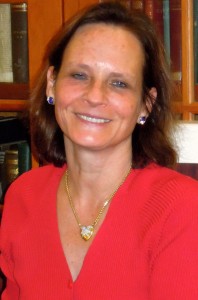
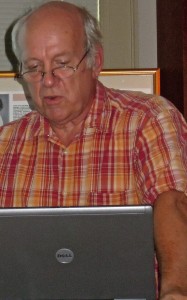
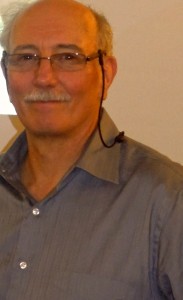
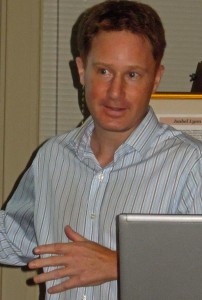
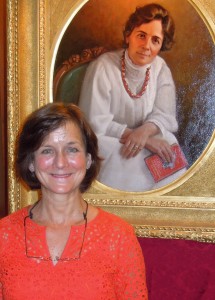
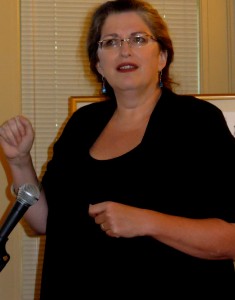
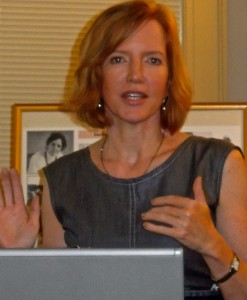
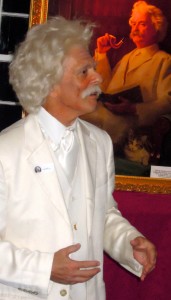




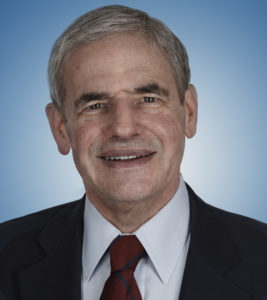
What a wonderful and well written write up on a special Mark Twain Event in Redding Ct … Mark Twain’s last home. Thank you Dave for your thoughts and efforts … much appreciated!
Thank you Susan, and my pleasure.
It was a fun and memorable day, thanks to all of you who organized the event and made your stimulating presentations.